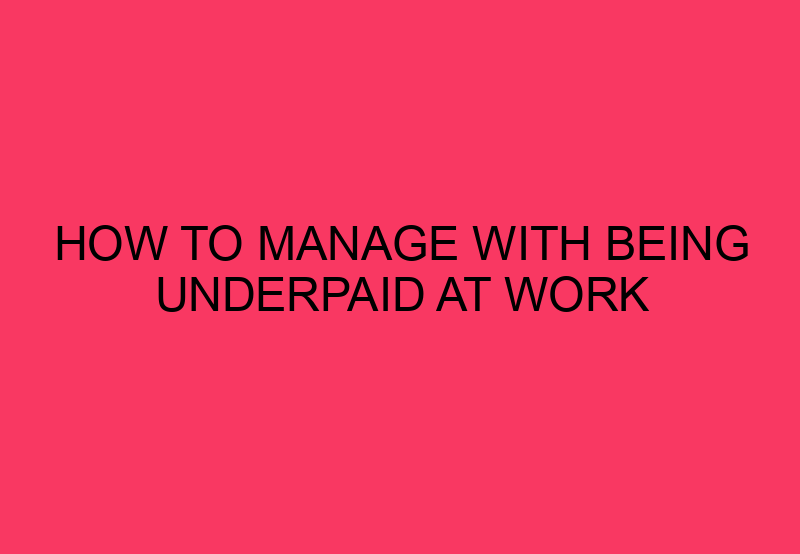There are many variables of work satisfaction, but few are as significant as salary. While it’s true that money isn’t the only motivator, it’s frequently the primary one. Knowing you might be making more money can dampen your excitement for your job, even if it’s one you like, is full of fascinating projects, has a helpful staff, and offers room for advancement. How to determine if you are underpaid at work, what to do if you are, and how to broach the topic with your employer are all covered in this article. Tips for Coping Being Underpaid At Work.
How do I know I’m being underpaid at work?
Robert Half found that 46% of workers are dissatisfied with their pay. That implies nearly half of the working population is dissatisfied with their income and believes they are overworked and underpaid.
It’s one thing to have personal evidence suggesting that you’re not generating enough money to save, invest, or travel as much as you’d want; it’s another to have hard data to back up your suspicions.
Take a minute to put yourself in the role of department head. An employee comes to you, complaining that she isn’t being compensated adequately. You question her about what’s bothering her, but all she says is, “I just feel that I should be earning more money.
The worker is acting in a way that does her no favors. Applying for a raise is a difficult task, and you won’t have much luck if you don’t have any facts to justify your case.
The bad news is that your manager isn’t holding out for you to ask for and receive a bonus. Before you go into their office demanding a raise, be sure you know exactly what it is you want.
What can I do about being underpaid at work?
Here are some of the best ways to figure out if you are being paid too little:
-
Stay professional
Being underpaid might be irritating, but the fact that you’re taking charge and requesting a raise is a healthy development. Focus on the quality of your work and the value you contribute to the team, and talk with poise and courtesy. This communicates to your management that you are capable of reaching your goals in a professional manner.
-
Value yourself
Think more carefully about your contributions to the team and the company as a whole. Consider the tasks you accomplished with pride or the way you handled challenging situations. Think about factors including how often coworkers ask for your assistance and whether or not you’ve had recent success with a project. Create a list of everything that stands out to you and highlight the areas where it displays your abilities.
-
Consideration of Progress
Think back to when you first started working there and note the differences. Think on the ways in that you’ve improved and the lessons you have gained. You may have begun your career with limited relevant experience, but via involvement in training and subsequent on-the-job learning, you have amassed significant expertise in your field. Personal development may be demonstrated in a variety of ways, for as through teaching new employees or by acquiring further certifications and training as you advance in your position.
-
Research salary
This is a great place to start when trying to determine your ideal wage. Find businesses who are hiring for positions that are related to yours, or very comparable to it. See if the job requirements and requirements line up with what you now perform, and make a note of the income ranges being offered. Salary calculators available online can also provide you with information about the market value of your skills and experience.
